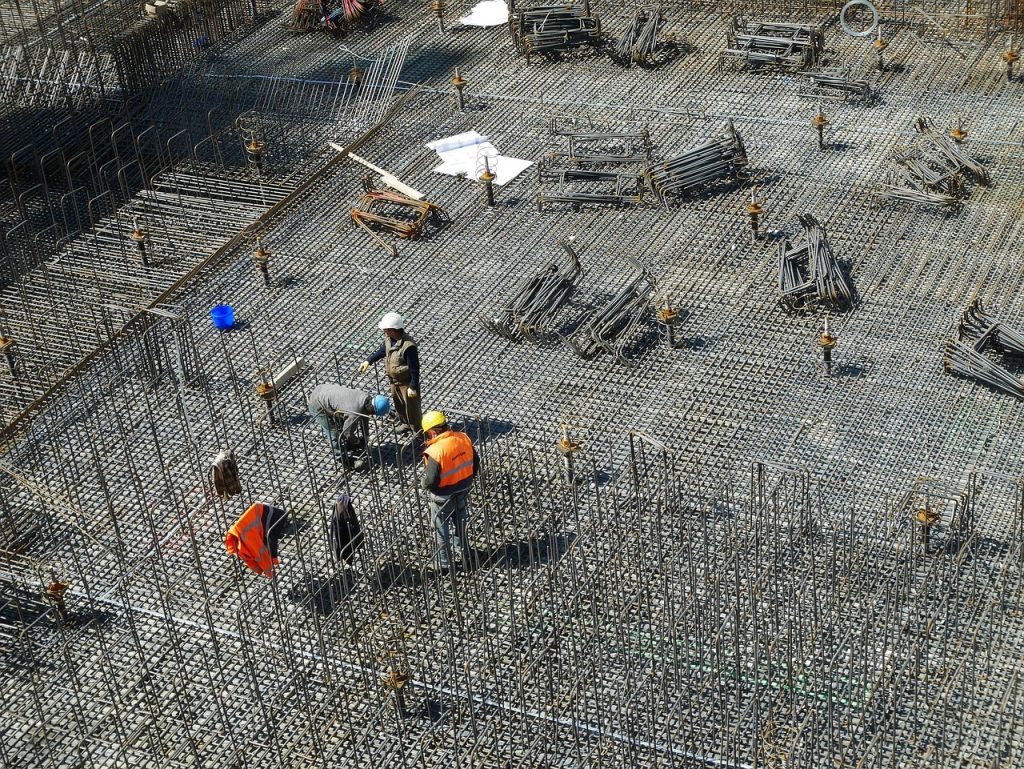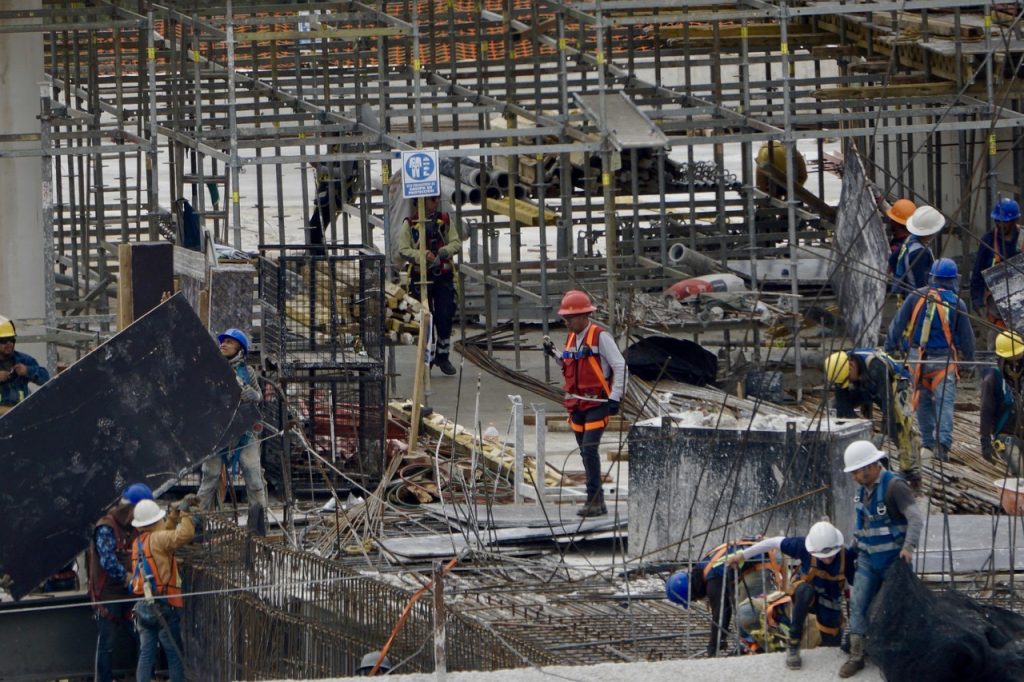The modern world is built—quite literally—on the expertise and precision of construction engineers. From towering skyscrapers and massive infrastructure projects to sustainable housing developments and advanced industrial facilities, construction engineers serve as the bridge between design concepts and real-world structures. Their work goes far beyond simply supervising construction sites; they ensure that every project meets safety standards, engineering principles, budget constraints, and client expectations.
In this comprehensive guide, we’ll take a deep dive into what a construction engineer does, explore their core responsibilities, essential skills, and educational requirements, and discuss the career opportunities in this highly technical and rewarding field.
Understanding What a Construction Engineer Is

A construction engineer is a professional who applies engineering principles to oversee and manage construction projects. They play a vital role in transforming blueprints and architectural plans into physical structures that are safe, efficient, and durable.
Unlike architects who focus on design aesthetics, or construction managers who focus mainly on project execution and logistics, construction engineers combine technical engineering knowledge with project management expertise. They ensure that every construction activity aligns with the project’s design specifications, materials standards, structural integrity requirements, and environmental regulations.
In essence, a construction engineer acts as the technical backbone of a construction project, ensuring the work meets both engineering and practical standards.
Construction engineers often specialize in one of several sub-disciplines, including:
- Civil engineering construction (bridges, roads, tunnels, dams)
- Building construction (commercial buildings, residential developments)
- Industrial construction (factories, power plants, refineries)
- Infrastructure development (transport systems, ports, airports, pipelines)
Also read: 12 Best Bali Villa Designs That Redefine Tropical Living
The Role of a Construction Engineer in Modern Projects
In today’s construction environment, projects are more complex and demanding than ever. Sustainability standards, digital modeling tools, and advanced construction technologies require engineers who are not only technically skilled but also adaptable and collaborative.
A construction engineer’s role typically involves:
- Interpreting and verifying technical drawings and specifications
- Overseeing site preparation, foundation work, and structure erection
- Coordinating with architects, contractors, and regulatory bodies
- Ensuring compliance with safety, quality, and environmental regulations
- Managing project schedules and budgets
- Applying engineering calculations to validate designs and material selections
Their work ensures that every stage of construction—from the excavation of the first trench to the final inspection—is completed efficiently and safely.

Key Responsibilities of a Construction Engineer
The responsibilities of a construction engineer extend across the entire project lifecycle—from design and planning through to completion and post-construction evaluation. Below are the core areas of their professional duties:
a. Project Planning and Design Interpretation
Construction engineers begin their work by thoroughly analyzing project designs, blueprints, and technical documentation. They review architectural drawings to ensure structural feasibility, identify potential conflicts, and recommend necessary engineering adjustments.
They also assist in cost estimation, helping to forecast material needs, labor requirements, and equipment utilization to keep the project within budget constraints.
b. Site Management and Supervision
Once the project moves to the construction phase, the engineer plays a key supervisory role. They oversee daily site operations, ensuring that construction activities follow engineering specifications and comply with quality standards.
They coordinate the work of subcontractors, site supervisors, and labor teams to maintain productivity and resolve technical issues as they arise.
c. Quality Control and Assurance
Construction engineers are responsible for implementing quality control (QC) measures to ensure that materials, workmanship, and construction processes meet established standards. They may perform site inspections, laboratory testing of materials (like concrete and steel), and structural assessments.
They also play a role in quality assurance (QA)—developing systems and protocols that prevent defects and ensure consistent project performance.
d. Safety Compliance
One of the most critical responsibilities of a construction engineer is ensuring site safety. They enforce Occupational Safety and Health (OSH) guidelines, conduct risk assessments, and implement safety procedures to protect workers, equipment, and the environment.
They may also be involved in training staff and enforcing compliance with safety legislation and company policies.
e. Cost and Schedule Management
Construction engineers work closely with project managers to control costs and schedules. They analyze progress reports, update construction timelines, and propose corrective actions when deviations occur.
By balancing engineering requirements with financial constraints, they contribute directly to a project’s profitability and success.
f. Communication and Documentation
Effective communication is a hallmark of a successful construction engineer. They liaise between different project stakeholders—such as architects, engineers, contractors, and clients—to ensure everyone is aligned on project goals.
They also maintain detailed project documentation, including daily logs, inspection reports, and progress updates, which are crucial for accountability and project evaluation.
Essential Skills for Construction Engineers
To thrive in this challenging profession, construction engineers must master a diverse set of technical, analytical, and interpersonal skills.
a. Technical Engineering Knowledge
A strong foundation in structural, civil, or mechanical engineering is essential. Construction engineers must understand load-bearing calculations, soil mechanics, fluid dynamics, and material science to ensure project integrity.
b. Project Management Proficiency
While they are primarily engineers, these professionals must also be adept at planning, scheduling, and coordinating complex projects involving multiple teams and moving parts. Familiarity with project management tools like Primavera P6, Microsoft Project, or Procore is often required.
c. Problem-Solving and Critical Thinking
Construction projects rarely go exactly as planned. Engineers must be quick thinkers who can identify technical issues and develop practical, cost-effective solutions without compromising safety or quality.
d. Communication and Leadership
Construction engineers regularly lead diverse teams. Strong communication and leadership skills are vital to delegate tasks, resolve conflicts, and maintain collaboration across departments.
e. Familiarity with Construction Technology
Modern construction increasingly relies on digital tools such as Building Information Modeling (BIM), CAD software, drones, and IoT sensors. Engineers must stay current with these technologies to enhance efficiency and accuracy.
f. Regulatory and Legal Knowledge
Construction engineers must understand local building codes, zoning laws, and safety regulations. Non-compliance can lead to legal complications and project delays.
Educational Path and Qualifications
Becoming a construction engineer typically starts with a bachelor’s degree in civil engineering, construction engineering, or construction management engineering. Coursework usually includes:
- Structural analysis and design
- Engineering materials
- Construction methods and management
- Surveying and geomatics
- Project scheduling and cost estimation
- Environmental and geotechnical engineering
Many engineers pursue professional certification or licensure, such as the Professional Engineer (PE) license, to demonstrate competency and expand their career prospects. In some countries, professional registration is mandatory for signing off on engineering designs or reports.
Postgraduate and Continuing Education
As technology and construction methods evolve, continuous education becomes essential. Some engineers pursue master’s degrees in construction engineering and management, while others take specialized certifications in project management (PMP), BIM modeling, or safety management.
The Difference Between Construction Engineers and Related Roles
Construction engineers often collaborate with a range of professionals in the built environment, including:
- Civil Engineers – Focus more on design and infrastructure analysis before construction begins.
- Construction Managers – Handle project logistics, budgets, and schedules but may not have the same depth of technical engineering expertise.
- Structural Engineers – Specialize in designing and analyzing load-bearing components of structures.
- Site Engineers – Work directly on-site and focus on daily execution, reporting to construction engineers or managers.
In short, construction engineers bridge the gap between pure design and practical execution—they turn engineering blueprints into physical, functioning structures.
Career Path and Professional Growth
A career in construction engineering offers diverse opportunities for advancement, depending on experience, education, and specialization.
Entry-Level Positions
- Junior Site Engineer
- Project Engineer Assistant
- Quality Control Engineer
- Estimation or Planning Engineer
Mid-Level Roles
With 5–10 years of experience, engineers often move into leadership or specialized roles such as:
- Construction Project Engineer
- Field Engineer
- Design Coordinator
- Structural Analyst
Senior-Level and Executive Roles
After a decade or more, experienced professionals may advance to senior management or consulting positions:
- Senior Construction Engineer
- Construction Manager
- Project Director
- Engineering Consultant
- Operations Director
Some also transition into academic or research roles, contributing to the advancement of construction technologies and sustainability initiatives.
Emerging Trends Shaping Construction Engineering
The construction industry is evolving rapidly, and construction engineers must adapt to emerging trends and innovations. Some key developments include:
a. Digital Transformation
The use of BIM (Building Information Modeling), digital twins, and cloud-based collaboration platforms allows engineers to model, simulate, and optimize projects in virtual environments before physical construction begins.
b. Sustainability and Green Building
With increasing environmental awareness, engineers are now integrating sustainable materials, energy-efficient systems, and eco-friendly construction techniques to minimize environmental impact.
c. Modular and Prefabricated Construction
Prefabrication reduces time, waste, and labor costs. Construction engineers must adapt to new assembly methods and logistics coordination.
d. Automation and Robotics
Robotic construction equipment, automated surveying drones, and AI-based planning systems are reshaping efficiency and precision in engineering projects.
e. Smart Infrastructure
IoT-enabled sensors embedded in buildings and bridges can monitor performance in real-time, requiring engineers with knowledge of data analytics and smart system integration.
Challenges in Construction Engineering
Despite its rewards, construction engineering also presents several challenges:
- Budget and Schedule Pressures: Balancing cost control with quality and safety is a constant test.
- Regulatory Complexity: Keeping up with changing construction codes and safety standards can be difficult.
- Labor Shortages: Finding skilled labor to execute complex projects remains a global challenge.
- Environmental Constraints: Managing sustainability goals while maintaining profitability is increasingly crucial.
- Technology Adoption: Adapting to rapid technological change requires ongoing learning and investment.
Successful construction engineers tackle these challenges through strategic planning, teamwork, and continuous skill development.
Also read: 7 Highly Recommended Bali Contractors for Foreign Investors in 2025
Why Construction Engineers Are Essential to Modern Society
Construction engineers are indispensable to modern civilization. Every road, hospital, airport, and high-rise tower exists because of their expertise in transforming designs into durable structures. Their blend of scientific precision and managerial insight ensures that the built environment remains safe, sustainable, and functional.
They are not just builders—they are problem solvers, innovators, and leaders driving the future of infrastructure and urban development.
Conclusion
A construction engineer is much more than a project technician—they are the guiding force behind every successful construction endeavor. Combining deep technical understanding with strategic management capabilities, they ensure that each project meets its design goals, stays within budget, and upholds the highest standards of safety and quality.
From planning and execution to innovation and sustainability, the role of a construction engineer continues to evolve alongside advances in technology and society’s growing infrastructure demands. For those passionate about shaping the physical world through science, engineering, and teamwork, a career in construction engineering offers limitless potential and impact.

Indah Suzanne
Indah Suzanne is a key player in Indonesia's design and architecture scene, leading Karyanusa Asia from Bali. As the driving force behind Karyanusa Asia in Bali, she combines innovative design concepts with exceptional construction expertise, delivering world-class villas, commercial spaces, and bespoke architectural projects that reflect both modern elegance and the island’s rich cultural heritage.





